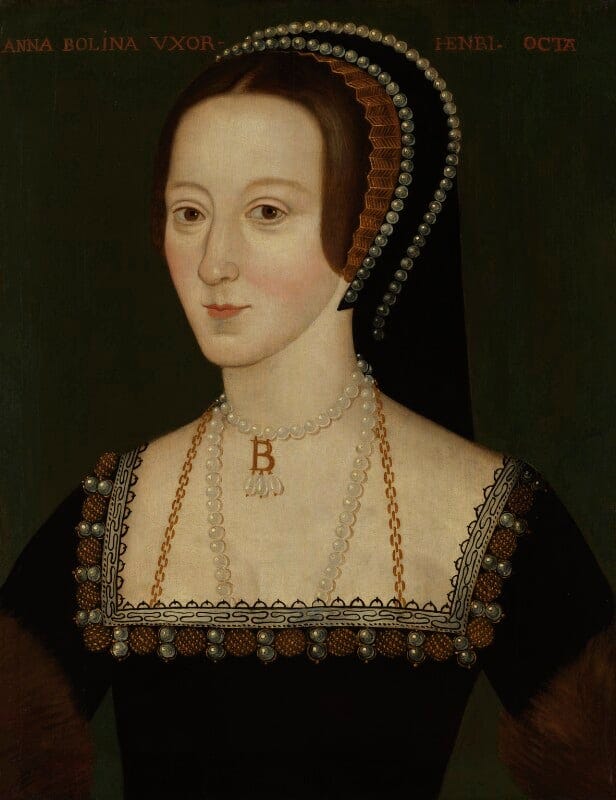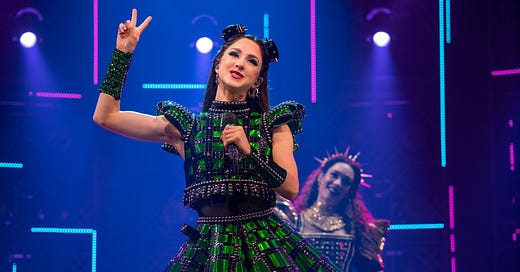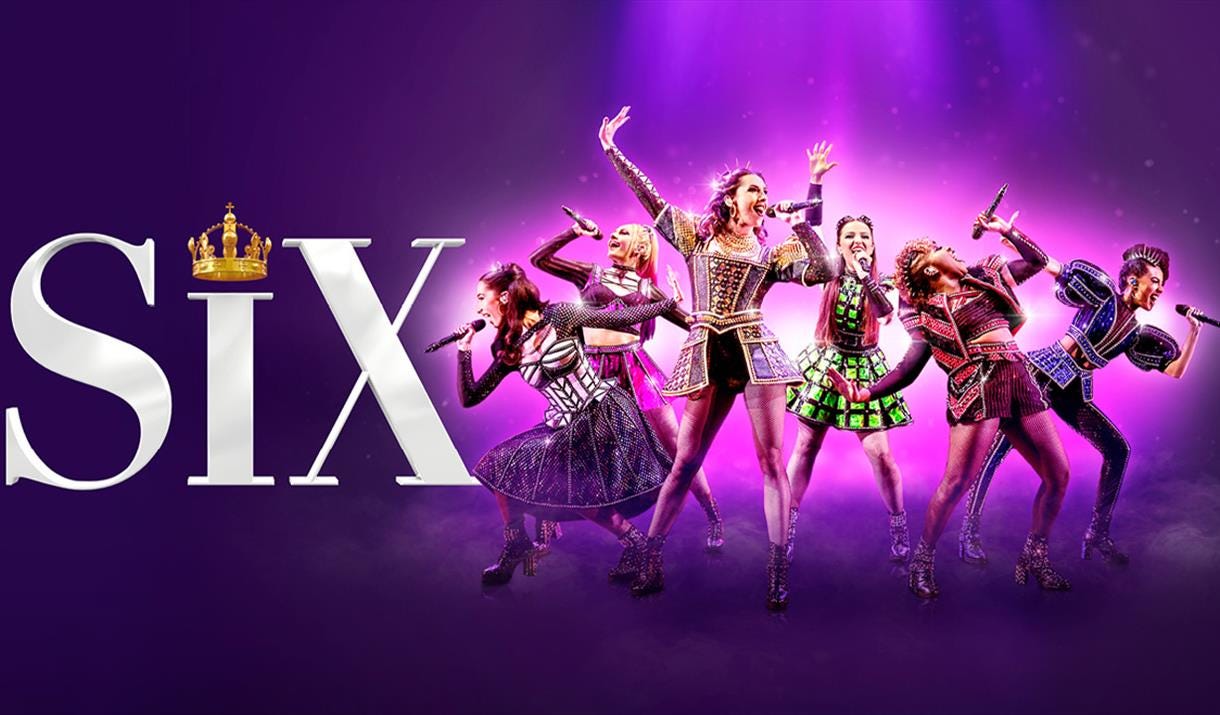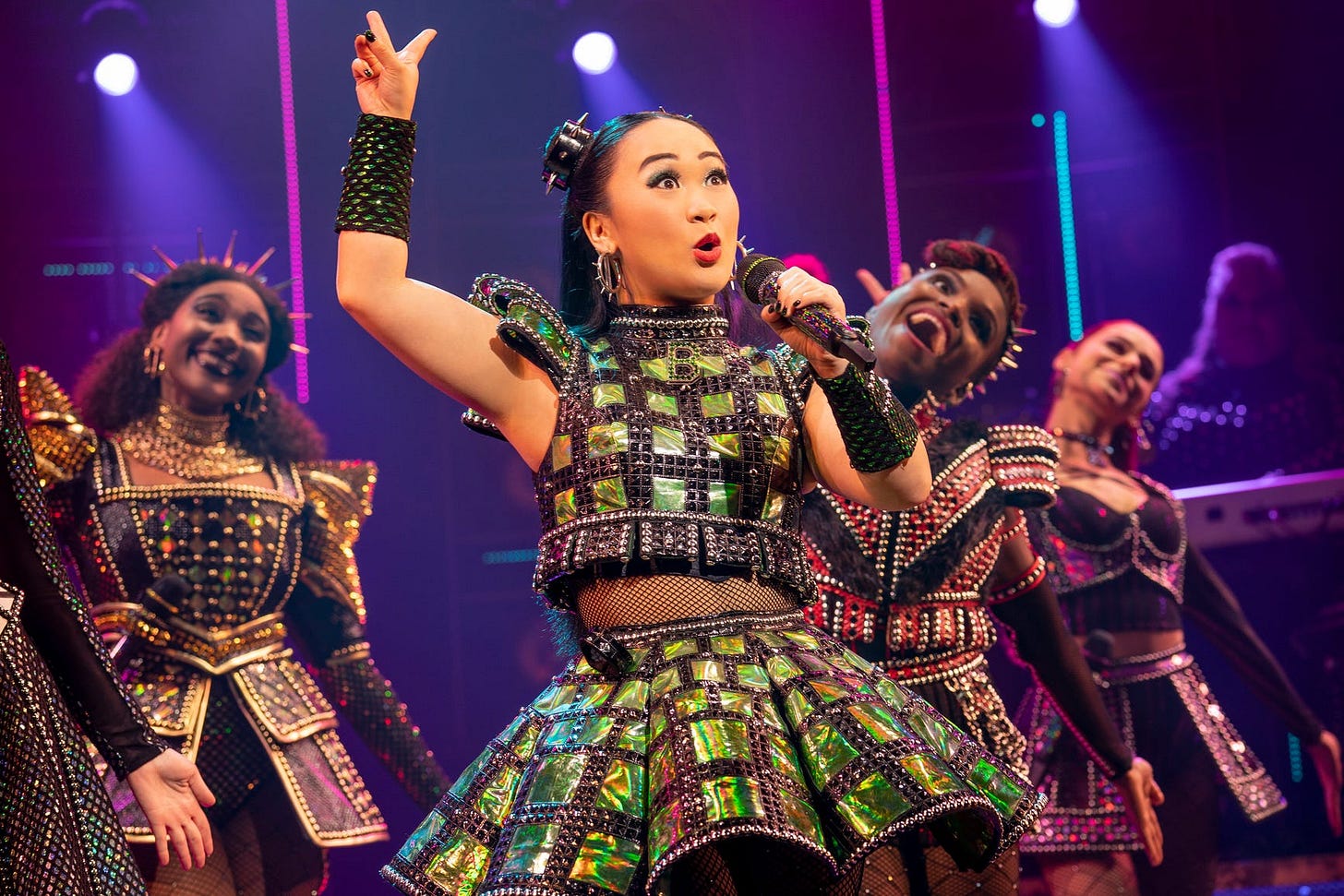'Sorry, Not Sorry 'Bout What I Said' - Anne Boleyn and Feminism in SIX The Musical
The less-than-feminist portrayal of Anne Boleyn in SIX The Musical
SIX The Musical is an absolute powerhouse in popular history. Immensely popular with people of all ages, backgrounds, and levels of historical knowledge, SIX brings the wives of Henry VIII to life with catchy songs, glitzy costumes and hilarious anecdotes.
I have long been a fan of SIX, and had the privilege of dedicating a huge portion of my MA dissertation to Kathryn Howard’s portrayal in the show. I am fascinated by the show’s feminist influence, with its overall aim being the empowerment of women and the encouragement of female solidarity. Not only does SIX The Musical inspire admiration for women who lived five centuries ago, it also nurtures an admiration for modern heroines too; reminding us to champion our fellow females, rather than put them down.
Following SIX’s widespread popularity, there has been a notable shift in audience perceptions of previously-criticised or readily-dismissed queens, such as Anna of Cleves and Kathryn Howard. Suddenly, their portrayal on stage has skyrocketed their reputations; proving to the world that they were so much more than the discarded bride or reckless tart. For this reason alone, the creators of SIX The Musical can only be applauded, and I’m in awe of the overwhelmingly positive impact the show has had on the world of popular history.
However, whilst I celebrate SIX The Musical’s positive impact upon the likes of Kathryn Howard, I’m slightly disappointed by its portrayal of Anne Boleyn. In her solo performance ‘Don’t Lose Ur Head’, Anne appears ditzy, flirtatious, insensitive and immature. Where Kathryn Howard was transformed from a silly flirt to a sympathetic victim, Anne Boleyn descended from being an icon of resilience and intelligence, to a rebellious young girl who did not comprehend the consequences of her actions.
In other words, SIX The Musical empowers Anne through her flaws and even cemented false accusations about her, rather than champion her more commendable qualities.
Not everyone agrees with me. In her research, Sandra Martínez Jiménez reflected upon the feminist tones of Anne Boleyn’s solo performance. By highlighting the sexual double standards between Tudor men and women, and mentioning the emotional torment Anne endured at Henry’s hands, Jiménez claimed that ‘Don’t Lose Ur Head’ contained both fourth-wave feminism and MeToo elements. Moreover, because SIX’s Anne Boleyn is modelled in Lily Allen and Avril Lavigne, Jiménez stated that Anne’s experiences mirrored the pressure and scrutiny Allen suffered at the hands of the press, and Anne’s ‘troublemaker’ attitude in the face of patriarchal restrictions exhibited Lavigne’s mischievous stance. In Jiménez’s eyes, Anne Boleyn’s portrayal in SIX underlined the emotional abuse and unjust sexual slanders she faced, which continued to plague her reputation for many centuries. As SIX The Musical was fighting against the slurs against Anne’s legacy, Jiménez argued that her portrayal on stage was in fact, feminist.
While I agree with Jiménez to a certain extent, I’m afraid that I cannot agree with her arguments entirely. Anne Boleyn’s appearance on stage, including her personality and lyrics, seemed to undermine SIX’s feminist stance and place Anne in a poorer light. Yes, Anne is a feisty character in SIX, who stood up to the injustices and false allegations held against her. This approach tallies with what we know of the real Anne’s strong and forthright nature. Yet segments of her solo act seemed to demote her intelligence in favour of her sexiness, whilst also mentioning various false rumours surrounding Anne’s past, which historians are working tirelessly to combat today.
‘Don’t Lose Ur Head’ is a playful and sassy song, which employs slang and text speech in order to make the performance engaging and relatable to a younger audience. For example, lyrics included ‘LOL’, ‘totes’ and ‘XO baby’. While this is an incredible play on words, the language makes Anne appear naive and childish, despite being incredibly well-educated and sophisticated in real life. It also presents Anne as young and frivolous, when in fact she was in her early thirties upon her marriage.
Anne’s real intelligence is further undermined with the lyrics: “Politics; not my thing!”, “I wanna dance and sing”, and “I’m just trying to have some fun”. We know Anne was a key political player during her relationship with Henry, who pushed religious reforms, educational aids and promoted social welfare. Dancing and singing were far from her only pursuits. Anne’s role during Henry’s break from Rome is also reduced to her appearance alone, with her intellectual input being discarded completely in the song ‘Ex-Wives’: “I broke England from the Church; Yeah, I’m that sexy”. Combined with the lyrics which suggest that Anne only attracted Henry because of her looks, SIX The Musical implies that Anne’s success was ensured by her physical attributes, rather than her intellect, charisma and sophistication.
The real Anne Boleyn has often been criticised for her sexuality and for being the ‘other woman’. Only recently have historians focused on Anne’s other qualities, by promoting her intelligence, charm, courage, progressive ideas, religious devotion, patronage and cultured background to understand her rise and fall, rather than just her physical allure alone. It’s striking therefore that Anne appears very sexual and sultry in SIX, often to the detriment of these other characteristics.
For instance, in the song ‘Ex-Wives’, Anne hints towards her flirtatious nature by claiming that she lost her head because, “my sleeves may be green, but my lipstick’s red”. She mocks Catherine of Aragon for not being “fitter” than her; accuses the men at court for being “lame”, and suggests that her and Henry were eager to marry in order to “get x-rated”. Not only does this present Anne as very superficial, she’s also not that likeable. Yes she’s cheeky, and yes, she’s fun-loving and playful, but she appears to be more concerned with her superior physical charms and how they can attract men, which can be off-putting when championing female solidarity.

Finally, there were many instances in ‘Don’t Lose Ur Head’ where the creators seemed to rehash old myths surrounding Anne’s story, which were used to damage her reputation yet were ultimately untrue. It’s such a shame, because there are so many clever inclusions of lesser-known facts about Anne, so the creators certainly knew their stuff! For a show which aims to rehabilitate the wives in a positive light, the inclusion of these falsities is baffling. Near the end of her solo performance, Anne mentions that Henry called her a ‘damned witch’, which promotes the myth that Anne was accused of witchcraft - she never was, (not officially anyway!)
In the same breath, Anne admits that she knowingly flirted with other men to get back at Henry for his infidelities, “just to make him jel”. This almost blames Anne for wronging Henry and ultimately brining about her downfall. Of course, I could be reading too much into this, but it’s a shame that the lyrics didn’t fully confirm Anne’s innocence in this instance.
Lastly, upon reading the lyrics of ‘Don’t Lose Ur Head’, I was surprised by Anne’s recollection that: “soon my daddy said; You should try and get ahead!”. Anne’s father, Thomas Boleyn, has long been portrayed as a pimp who whored out his daughters to the King in order to further his ambitions. Again, this lyric embodies a false allegation against Thomas Boleyn which has long been disproved, and further reduces Anne’s role in her courtship with Henry VIII.
As I say, I could be reading too much into Anne Boleyn’s portrayal in SIX The Musical. Ultimately the show provides entertainment rather than historical accuracy, and it is a light-hearted portrayal of Henry VIII’s six wives, not an academic lecture! I still adore the show and will continue to promote it to anyone and everyone. I also love its overall message of feminism, female empowerment and universal sisterhood, as well as the promotion of the wives’ admirable qualities, especially long-judged wives such as Kathryn Howard.
However, despite being a funny, catchy and uplifting part of the show, I can’t help but feel that Anne Boleyn’s performance in SIX The Musical was the production’s least-feminist part, which is all the more surprising considering that Anne Boleyn has long been cherished as a feminist icon in recent years. Is there something I’m missing? Let me know in the comments!







Reading your post having just started Eric Ives' biography on Anne. While I agree that entertainment is something different, at the same time I dont think it should mistepresent historical figures and what is known to be fact. I mean, Margaret Beaufort's reputation suffered a huge blow due to The White Princess series.
Thanks for this, Leigh! I so agree with your views, however isn't there a point of view which argues that any publicity (for historical subjects, figures etc.), is good publicity because it draws in a new generation potentially? P.S. I'm playing devil's advocate to some extent here! 😊